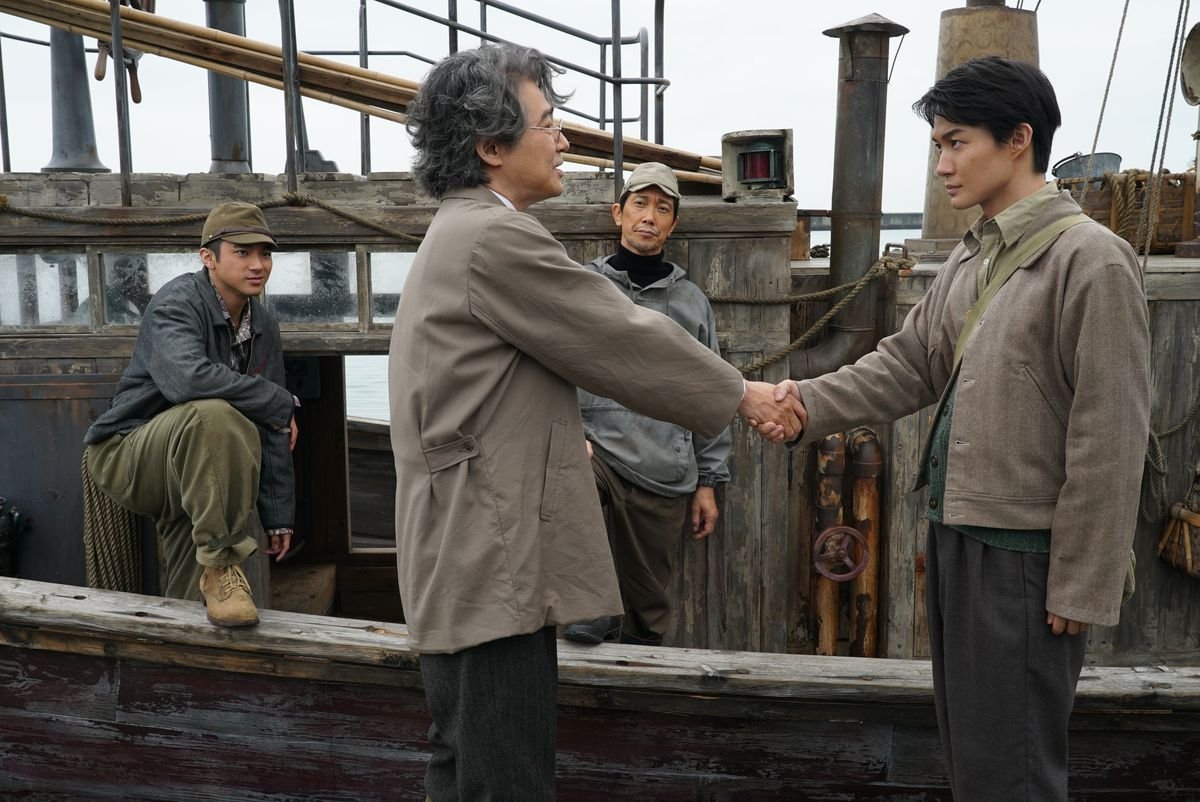I finally got to watch Takashi Yamazaki’s film Godzilla Minus One recently, and I’m really pleased I got to see it on the big screen. It was by far my favourite film of 2023 and it resonated with me as both an audience member and as a film-maker. I could write pages and pages about the themes that the film explores, but that wasn’t the main takeaway for me. As someone who made their directorial debut this year, I often slip into analytical mode when I’m watching a film or television show. When something is truly transcendental it’s different, I quickly forget about the script writing process, the direction, shot choices and composition, visual effects, and score and find myself washed along with the story instead. What makes this film so powerful, is the strong central characters, exquisitely crafted through both script and performance. You care about all the people you get to meet in this film and are invested in them, as their individual story arcs play out. Godzilla in many ways is a catalyst, a force of nature, an existential threat that prompts change. This isn’t just a throwaway monster movie, far from it. They draw you in via the characters, and you are with them from the very first frame to the very last one, emotionally invested far more than a kaiju movie might suggest.
I strongly believe you can create just as emotionally charged, character-driven stories in genre storytelling, as you can in straight drama. For me, this is where some Hollywood films get it wrong, their focus being on pure spectacle often at the expense of three-dimensional characterisation. If I don’t care about the central characters in a film, and don’t believe their relationships or the motivation behind their actions then no amount of visual bells and whistles is going to make me any more than a passive observer. The best cinema, like the best music, makes you feel.
Another excellent example of an elevated genre film that succeeds similarly is the 2014 film Spring by Justin Benson and Aaron Moorhead (indie darlings who have recently become Marvel Studios creators). Before Godzilla Minus One works as a monster movie or even a disaster film, it has to function as a post-war story about the Japanese people. Before Spring reveals the terror that lies beneath the surface in Italy, this Horror/Sci-Fi/Romance has to work as a romance. You have to believe that a relationship can be established and deeply developed in a very small amount of screen time, just as films like True Romance and Before Sunrise successfully did. If they hadn’t got that central relationship right, the whole film would lose its potency as a result.
Seeing Godzilla Minus One, a film I only knew about thanks to online word of mouth from people I trust, has made me examine my own creative process again. When I look back on Little Brown Bird, the script became most successful when I worked harder on the two central characters and the relationship that binds them. If you don’t buy into Kate and her Father, you won’t be with us for the rest of our short journey. With actors of the calibre of John Rhys-Davies and Eliza Butterworth in our lead roles, we ended up with just the emotionally charged, character-driven elevated genre piece I was hoping for.
As we head into 2024 I’ll be working on another elevated genre project, feature film Bone Dry. I’ll be reminding myself regularly about how powerful Godzilla Minus One was, as I start the scriptwriting process. I might even squeeze in time for a rewatch of Spring. If I want an audience to suspend their disbelief without losing them along the way, then character is everything. If you haven’t seen Godzilla Minus One yet, I highly recommend it. It’s still in cinemas at the time of writing.
















